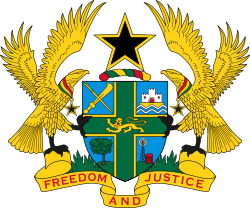| ||||||||||||||||||||||||||||
All 104 seats in the legislative assembly 53 seats needed for a majority | ||||||||||||||||||||||||||||
|---|---|---|---|---|---|---|---|---|---|---|---|---|---|---|---|---|---|---|---|---|---|---|---|---|---|---|---|---|
| ||||||||||||||||||||||||||||
 |
|---|
| Constitution |
| |
General elections were held in the Gold Coast on 15 June 1954. The result was a victory for Kwame Nkrumah's Convention People's Party, which won 72 of the 104 seats.
